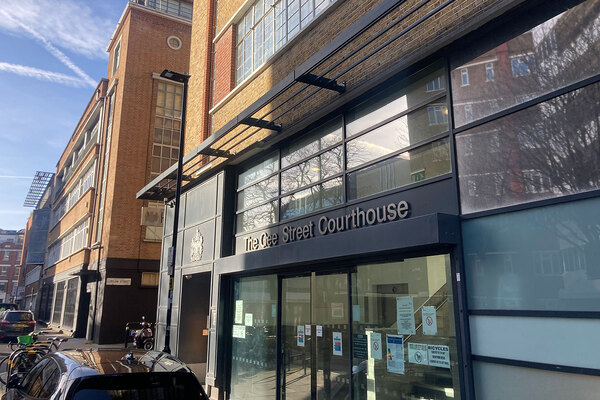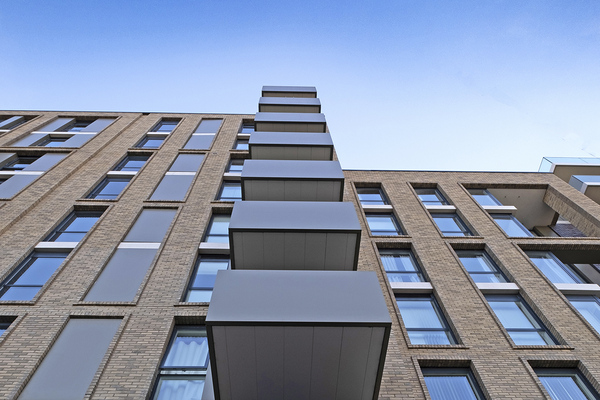You are viewing 1 of your 1 free articles
Ministers must do something about ASB eviction process
Paradigm Housing’s chief executive Matthew Bailes calls for an easier and less costly method of evicting anti-social tenants
The government has for some time been reluctant to place legal and regulatory burdens on private landlords. For example, despite much fanfare the government has already ruled out imposing new three-year tenancies on buy-to-let landlords.
Ministers are clearly concerned that new restrictions would lead to rent increases, reductions in supply, or both.
Social housing exists to support the households that get a raw deal in the housing market, so it would be very odd if we mimicked the failings of the private sector.
“Such is the glacial pace of the legal process that there is ample scope for those facing eviction to inflict more pain on others.”
Like all social landlords, at Paradigm we view long-term security of tenure as a key part of our offer. This includes employing a dedicated team to support tenants at risk of losing their home.
Nonetheless, it is important that the right balance is struck between the interests of individual households and the wider interests of the communities that we serve. For example, we wouldn’t be able to provide housing for anyone if individual households could withhold rent with impunity. Similarly, we need to be able to tackle anti-social behaviour.
Inevitably there are occasions when to get that balance right we have no option but to seek possession.
Far too often we are finding this a lengthy, expensive and frustrating process. I doubt we’re alone.
READ MORE ABOUT ASB AND EVICTION POWERS
Government reviewing associations’ powers to evict problem tenants
Take, for example, a case of a man (in a ground floor flat) who abused other residents, damaged fire safety equipment, refused access and started a fire in his own home.
It took the best part of a year, legal fees of £25,000 and countless hours of officer time to deal with this case. Unsurprisingly we also had a significant repairs bill.
We had a case of someone who tortured a cat (with bleach) and threatened to kill other residents and their children. Despite the fact that we provided unambiguous CCTV evidence and witness statements, the judge decided not to grant us a without notice injunction, thereby exposing the other tenants (and their pets) to an extended period of risk.
This is not the right balance, and it has serious consequences. First, there’s the impact on other residents.
It takes time to pull an anti-social behaviour case together, and such is the glacial pace of the legal process that there is ample scope for those facing eviction to inflict more pain on others, as well as rack up substantial arrears and damage property.
This is causing real harm to innocent people, mostly other social housing tenants. The cynic in me wonders whether the system would have improved if a wider section of the population felt its consequences.
The financial costs are also mounting up. As a broad rule of thumb, one difficult case costs us about as much as the level of subsidy needed to build a new home. Since possession is usually obtained (like any responsible landlord, we only seek possession where absolutely necessary) this price is paid to little effect.
In theory the legal framework is there to protect the vulnerable, but it is risking unintended consequences. Some of the outcomes seem to be about keeping people in their homes at all costs, rather than addressing the root cause of the problem, which all too often is a lack of adequate support from public sector agencies.
“One difficult case costs us about as much as the level of subsidy needed to build a new home.”
Such is the difficulty in dealing with problems that do arise, there is a possibility that landlords will manage risks by being more selective about the tenants they take on in the first place, potentially harming rather than helping the most vulnerable.
All this leaves us with a bizarre paradox. Private landlords, who are focused on profits that may or may not be reinvested in housing, can and do find ways to terminate tenancies with relative ease.
Meanwhile, not-for-profit landlords, which are bound by their objects and ethics to house those in need, and recycle surpluses into new supply, are hamstrung by the legal system. This is not a sensible policy outcome.
The causes of these issues are complex.
It would be worth reviewing the statute (despite relatively new provision for serious anti-social behaviour cases) but a major part of the problem is the length of time it takes to complete the legal process, as well as some weak incentives for people on legal aid and some exotic interpretations of the law.
Perhaps there is a simpler way to settle cases without the need to put further strain on the courts?
Government has said it will look at anti-social behaviour cases. If ministers look closely I think they will be deeply unimpressed by the legal system. Let’s hope they have the time and energy to do something about it.
Matthew Bailes, chief executive, Paradigm Housing








